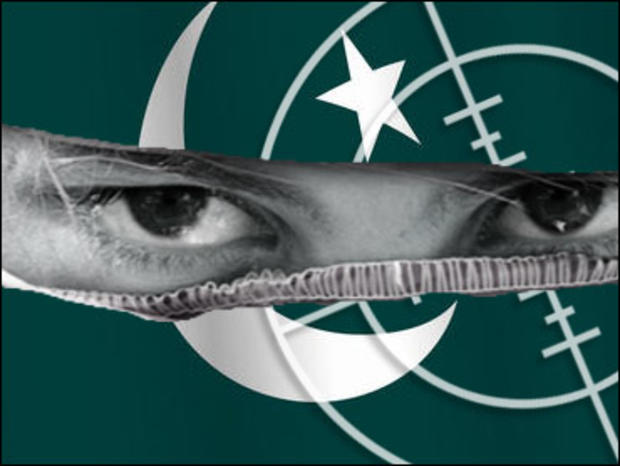Ex-militant: Pakistan supports terror groups
A former Islamic militant commander tells the New York Times in no uncertain terms that Pakistan's powerful military and intelligence agencies are still allied with groups including the Taliban and the Haqqani network as a means of countering the perceived threats of India and the U.S. military presence in Afghanistan.
His name was not given, but the Times said the commander was a well-known and senior player among Pakistan's array of armed fundamentalist groups, and his remarks fly in the face of assurances by the Pakistani government that any support for militant groups has dried up since the Sept. 11 terror attacks on the United States.
Why won't Pakistan dump the Islamists?
He told the newspaper he attended several meetings inside Pakistan, in and since 2001, where retired brass from Pakistan's military and premier spy agency, the ISI, discussed strategy to attack the U.S. military in neighboring Afghanistan.
The commander described one meeting just after the 2001 fall of the Taliban regime where members of the Pakistani military and the ISI met commanders of the Taliban and other groups, including the Haqqani network - thought to represent the largest threat to U.S. and Afghan troops (the group thought to be behind last week's deadly blast at a Kabul hotel), to plan attacks on U.S. troops.
In spite of Pakistan's repeated assurances that all support for such groups has ended, suspicions have remained high in Washington and Kabul that Pakistan continues to covertly aid the groups - often by simply looking the other way.
The commander's claims go further, saying the military provides material support and training for groups like the Taliban, Lashkar-e-Taiba, Harakat-ul-Mujahedeen and Hizbul Mujahedeen.
Osama bin Laden's demise at the hands of U.S. Navy SEALs in a compound in Pakistan led to renewed calls by members of Congress to cut-off the massive aid payments which have seen American tax-payers cough up some $20 billion for Pakistan in the last decade.
The Obama administration responded by warning Islamabad that the aid payments are contingent upon cooperation in targeting militants operating on Pakistani soil - but the implicit decision was that relations with the nation at the long-time hub of al Qaeda operations were too valuable to risk by cutting off funds. For now, there is no serious move afoot in Congress to stop the $1.3 billion in annual funding for Pakistan - just rhetoric.
The commander's claim that Pakistan's government still supports the Haqqani network is of particular concern. While the Taliban -- the Afghan Taliban headed by Mullah Omar -- has shown little interest of late in being a global terror network targeting foreign interests, the Haqqani network is believed to be closely allied with al Qaeda, and al Qaeda remains intent on staging attacks on the U.S.
If the commander's assessment is accurate, it may help explain why the United States government is still fighting a war in Afghanistan against al Qaeda, which barely has a presence in the country any longer.
Al Qaeda has relatively few fighters left inside Afghanistan, and the group's influence there has waned tremendously, but the threat from neighboring Pakistan clearly remains very real - in the form of the Haqqani network and its al Qaeda allies who would leap at any opportunity to move back across the border en masse.
